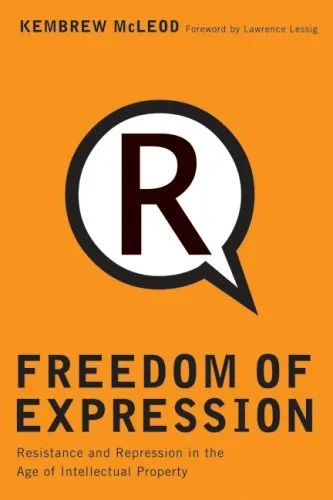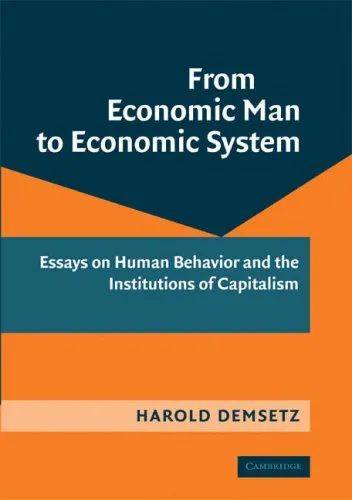Freedom of Expression: Resistance and Repression in the Age of Intellectual Property
4.5
Reviews from our users

You Can Ask your questions from this book's AI after Login
Each download or ask from book AI costs 2 points. To earn more free points, please visit the Points Guide Page and complete some valuable actions.Related Refrences:
Introduction to Freedom of Expression: Resistance and Repression in the Age of Intellectual Property
In an age where intellectual property dominates the cultural and economic landscape, Freedom of Expression: Resistance and Repression in the Age of Intellectual Property delves into the critical intersection of creativity, control, and ownership. This book confronts pressing questions about how intellectual property laws shape cultural production, stifle creativity, and limit our freedom of expression. It is a call to action, not only for those who create but also for those who consume and interpret culture. Written by Kembrew McLeod, a renowned scholar, journalist, and activist, this book critically examines the contemporary landscape of intellectual property and its effects on freedom, innovation, and resistance.
Detailed Summary
In this book, Kembrew McLeod takes readers into the complexities of intellectual property law and its impact on human creativity and the public’s right to share culture. The narrative is framed through a series of engaging case studies and historical examples that reveal the often-overlooked tensions between corporate profit motives and the public good. McLeod discusses how the expansion of copyright, trademark, and patent laws has been used not only as a tool for economic control but also as a mechanism for censorship and cultural repression.
The book highlights the growing movement of activists, artists, and academics who resist these restrictive frameworks. From DIY cultural creators to activists working in a world governed by digital piracy and remix culture, McLeod demonstrates how grassroots movements have emerged to protect freedoms that are increasingly under threat. The author doesn’t shy away from critiquing both legal systems and corporate practices, exploring how they intersect to centralize power in the hands of a few, often at the cost of silencing marginalized voices.
By interweaving real-world examples with academic insights, McLeod makes a compelling argument that intellectual property laws, as they currently exist, hinder rather than help societies flourish. He also emphasizes the need to strike a balance between protecting creators and encouraging free expression for everyone.
Key Takeaways
- Intellectual property laws are neither neutral nor objective; they are political tools often used to consolidate power.
- Corporate monopolization of culture limits communal access to shared knowledge, art, and history.
- Successful resistance to repressive intellectual property regimes often emerges from grassroots activism and creative subversion.
- Balancing creators’ rights and public freedoms is essential to ensure a healthy, open society.
- Critical awareness and public action are necessary to resist the cultural and economic consequences of overreaching intellectual property laws.
Famous Quotes from the Book
“Freedom of expression is not just a legal concept; it’s a cultural and political necessity.”
“Popular culture is not just entertainment; it’s the language through which societies communicate and grow.”
“The battle over intellectual property is a battle over the future of culture itself.”
Why This Book Matters
The book is critically important in today’s world, where issues of intellectual property and cultural expression have become all-encompassing. As technology evolves and the internet permeates all aspects of life, the stakes have only risen. With corporations and governments seeking greater control over information, creativity, and public discourse, McLeod’s insights are essential for understanding the dynamics at play. Readers come away with not only a deeper understanding of copyright and intellectual property issues but also a sense of urgency to act.
What makes this work truly significant is McLeod’s ability to connect complex legal and theoretical arguments with real-world implications. By bridging the gap between academia and activism, Freedom of Expression equips readers with the intellectual tools and moral compass needed to effect change. Whether you are an artist, a policymaker, or a concerned citizen, this book resonates with everyone who values creativity and the democratization of culture.
Free Direct Download
Get Free Access to Download this and other Thousands of Books (Join Now)
For read this book you need PDF Reader Software like Foxit Reader
Accessing books through legal platforms and public libraries not only supports the rights of authors and publishers but also contributes to the sustainability of reading culture. Before downloading, please take a moment to consider these options.
Find this book on other platforms:
WorldCat helps you find books in libraries worldwide.
See ratings, reviews, and discussions on Goodreads.
Find and buy rare or used books on AbeBooks.



